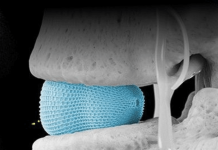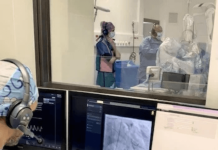CorFlow Therapeutics has raised $48.5m (€44m) in a Series B financing round to advance its microvascular obstruction (MVO) detection device through a pivotal study ahead of market clearance, following positive data from a first-in-human study last year.
Financing from the round, co-led by Broadview Ventures and Panakes Partners, will fund the MOCA II study being conducted in the US and Europe.
The trial will test the technology’s ability to diagnose MVO in heart attack patients who have just undergone stent implantation.
Related: CSA Medical raises $53m to commercialise bronchitis cryotherapy
There were just under seven million percutaneous coronary intervention procedures conducted globally in 2023, according to analysis by GlobalData.
Switzerland-headquartered CorFlow says MVO affects more than half of acute heart attack patients and is a key sign of heart failure and mortality. The company claims its device helps provide detection of MVO while patients are still in the cath lab, the area in the hospital where heart procedures are usually carried out.
The CoFI system comprises a pressure-sensing guidewire, a catheter, console. A single-use sterile cassette forms an infusion pump, that along with algorithms, measures the heart’s pressure response to controlled flow infusions. The system facilitates MVO detection via diagnostic parameters not previously available in the cath lab, the company says.
CorFlow’s device, which gained breakthrough device designation by the US Food and Drug Administration (FDA) in 2019, is also designed to enable localised delivery of therapeutics to the microvasculature upon MVO diagnosis.
A first-in-human trial (NCT03654573) demonstrated positive data in patients with an ST elevation myocardial infarction (STEMI), the most severe type of heart attack. The system produced sensitivity and specificity of 94% and 91% respectively, as per results announced at EuroPCR 2023.
The MOCA II trial, being conducted under an FDA-approved investigational device exemption, will recruit several hundred patients undergoing stent implantation due to ST-Elevation Myocardial Infarction (STEMI). It will compare CoFl’s approach to post-procedure contrast-enhanced cardiac magnetic resonance imaging (CMRI), the current gold standard for detecting MVO.
The funding will also support a randomised controlled trial in Europe evaluating whether localised delivery of therapeutics to the microvasculature immediately following stent implantation can improve outcomes in patients diagnosed with MVO.
CorFlow’s CEO Paul Mead said: “[Recent data] supports our collective confidence that we can improve outcomes in patients who suffer heart attacks, specifically those patients whose microvascular disease goes undiagnosed and untreated today.”






